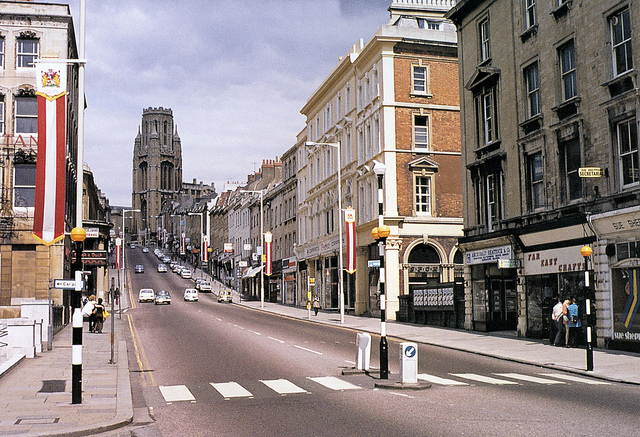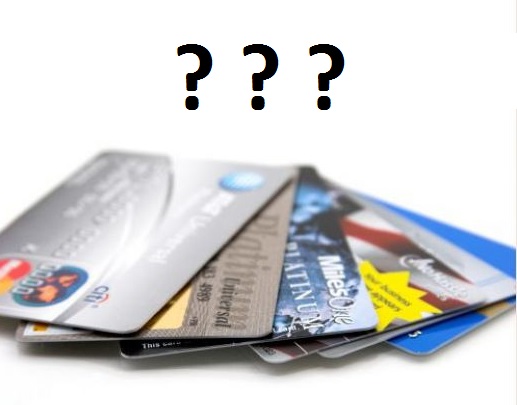Category Archives: tips
When is it still worthwhile to use a travel agent?
In this era of self-serve travel planning, it’s easy to assume that the travel agent is a dinosaur well on its way to extinction.
While this has been the case for the past decade, the pendulum has begun to swing back in the other direction lately, as many people have found the burden of coordinating their own travels to be a drain on their energy and their personal time.
When is it worthwhile to use a travel agent? The following three scenarios are excellent examples of when it makes sense to hire a travel expert.
When you are traveling internationally to an unfamiliar destination
You may know the ins and outs of travel within your own nation, and you might be aware of what it takes to travel to the beaches of Spain, but what about if you are traveling to Asia, or Latin America? These parts of the world often have a tricky series of visa requirements and hidden fees that would make the Byzantines crack a smile, as many independent travelers have found out about at the last minute.
Don’t be caught unaware: hire a travel agent that knows about the rules for any nation to which you might be considering a trip, and that actively stays on top of any changes that occur (that’s what they get paid for, after all!) in visa requirements and fees on a day to day basis.
When you have your hands full planning a wedding
Weddings are full of complicated plans that inspire nothing but stress leading up to the Big Day. Do you really think you’ll have the capability to plan a honeymoon while you trying to track down a reliable caterer or a DJ that will spin appropriate tunes at your reception?
Outsource this important job to travel agents at companies like Eshores (http://www.eshores.co.uk/), as they have a lifetime of experience at organizing romantic getaways for countless couples in bad need of a change of scenery to rekindle the love in their lives. Just give them an idea of what you are looking for, and let them handle the rest.
When you are tasked with planning a trip for a group of friends
While you bow to nobody but yourself when you travel solo, traveling with friends is a completely different matter altogether. Unlike the freedom of your backpacking days, you now have to consider the wants, desires and needs of multiple people, and for many, the logistical nightmare has the potential to suck the joy out of the trip for you, the anointed travel expert in your group of pals.
By letting a travel agent handle the detail work after filling them in on the needs and wants of your group, you’ll have all the fun you ought to have on a journey with your buds.
Top Things To Know About Visiting Bristol
The top things to know about visiting Bristol are not only interesting, but can also help you prepare for your trip in West Country’s unofficial capital. Bristol remains one of England’s top tourist destinations, despite the devastating legacy of the war. And with its laidback vibe backed by great music, Bristol is a place you will definitely enjoy staying in.
Here are some of the top things to know about visiting Bristol, so pack your Carlton travel luggage, get your plane, train or bus ticket, and get ready to enjoy one of England’s most interesting cities!
Great music scene. If you’re into music, then Bristol is one of the places you should definitely visit. Some of the greatest acts in the music scene have their humble beginnings here in Bristol, such as Massive Attack and Portishead. While it was once the backwater of the British music scene back in the 80’s, it is now considered Britain’s most musical city in 2010. To date, its music scene is still as vibrant as ever.
Get free maps. If you’d like to travel around Bristol without joining one of those packaged tours, you can grab a free map from the Visit Bristol website, the city’s official tourism website. You can also get the distinctive Blue A3 tourist maps from the Tourist Information Centre, the library, shops and the Temple Meads railway station. These maps cover the city centre, the Harbourside and Clifton.
It’s a year round tourist destination. One of the top things to know about visiting Bristol is that it’s a year-round tourist destination with something to look forward to the entire year. There’s a great number of celebrations and festivals spread out the entire year, so you won’t miss out on anything when you visit the city anytime you please. There is also some beautiful countryside around Bristol to enjoy.
Watch out for drunken brawls. Friday and Saturday nights may not only mean a vibrant night life in Bristol but also a night for isolated drunken brawls especially during closing time. But thanks to the heavy police presence in the city centre, this has been significantly reduced.
Scammers and drug peddlers. While Bristol is generally a safe tourist destination, there are areas that need to be avoided especially during the wee hours of the morning. Stay out of Baldwin Street at around 11:00 PM to 2:00 AM.
In addition, watch out for people selling you drugs. Often, these people don’t have drugs with them and will instead give you a bogus parcel and run-off with your money. They also have knives, so it’s best to avoid them at all costs.
Top Tips: Getting the right health insurance for your travel
There are many things that need to be checked, prepared and packed when getting ready to travel the world: passport, flight times, foreign currency, but not many are more important than ensuring you have the right medical insurance.
Medical insurance is designed to protect your health and well being wherever you are in the world. The quality and cost of healthcare provision varies greatly from country to country and as a foreign national you are unlikely to be entitled to free or subsidised care. By investing in health insurance you can ensure you will always have access to good quality healthcare without the risk of expensive medical bills. Here’s our tips for navigating the whole process.
Limitations of travel insurance
The most common form of medical insurance used by travellers comes as part of a travel insurance package. Travel insurance is designed to protect you from damaging expenses such as medical bills whilst on a short trip (generally no more than a month or two) and whilst it can be an effective solution it does have its limitations.
The medical cover provided by travel insurance is designed to get you well enough to be repatriated before flying you home for full treatment. This can be the ideal solution if you fall ill during a week-long holiday but can lead to extended trips being unnecessarily cut short by injury or illness. Moreover, travel insurance often has a maximum trip duration, which can be restrictive for ambitious expeditions.
What does expatriate health insurance offer?
Solutions for many of the limitations of travel insurance can be found in expatriate health insurance. These policies are designed to provide quality, affordable health cover for those travelling, living or working in a foreign country for extended periods of time. Unlike travel insurance, expatriate health insurance facilitates your treatment and recovery whilst abroad and has no maximum duration; policies can be extended for as long as you need them.
Moreover, policies are generally flexible and can be tailored to fit individual needs. Entry level policies will tend to include cover for hospital treatment and accommodation and may include some provision for cancer treatment and maternity care. Add-ons might include cover for emergency medical evacuation, a prudent option for extreme sports enthusiasts, and insurance covering doctors’ visits and prescriptions.
If you are planning an extended trip abroad, expatriate health insurance could be an excellent way to protect your physical and financial well being.
What Exactly are Airline Mile Credit Cards?
What are airline miles credit cards and how do they work?
Since their arrival in September 1958, credit cards today have a widespread reach and acceptance. They have eased the process of making payments by negating the need for carrying cash. Further, their popularity has fueled the aspirations of the online shopping culture. So it comes as no surprise that banks vie with each other for acquiring more customers. In order to achieve this, they offer rewards like cashback rewards, points or airline miles.
Airline mile credit cards are a type of travel credit cards. They enable cardholders to earn airline miles each time they use the card. Travelling has become increasingly expensive; paying hard-earned money for flights, at hotels and then for other purchases when holidaying, can be hard to digest. Recognizing this need, credit card issuers quickly created the airline miles credit card.
These cards offered airline miles in lieu of each pound spent using the card. As the miles accumulate, so do the benefits. Hence, once you have a sizeable number of airline miles in your account, you can enjoy several benefits. These could include free flights to and from several destinations, free accommodation at top tier hotels and other perks.
There are two types of airline miles credit cards:
- Airline associated cards: These cards have an affiliation to a specific airline. You can earn airline miles each time you use the card and whenever you choose to fly on the affiliated airline. These cards are worth it if you use the affiliated airline frequently as you can generally earn double points for each ticket you book on this particular airline.
- General air miles cards: These cards enable you to earn airline miles for each purchase. Further, you can redeem the airline miles towards purchasing tickets for any flight you wish. If you do not have loyalty towards any specific airline group, this card is useful for the flexibility it offers.
How airline mile credit cards work
You can use airline mile credit cards in the same way as you use other credit cards. The sole point of difference lies in the way you accumulate benefits. Thus, instead of accumulating reward points, you will accumulate airline miles. When you have a sizable number of airline miles, you can redeem them for free flights and other benefits.
A point to remember with airline mile credit cards is the return you get on your investments. Most credit cards will offer you one airline mile for each pound spent. Therefore, look for cards that offer you more than this 1:1 ratio. It will help you accumulate points faster. Also, opt for credit cards that give you airline miles for every category of purchase i.e. groceries, petrol refills etc. This way, each time you use the card to pay for something, you can add to your balance of accumulated airline miles.
Some airline mile credit cards provide several thousand welcome miles when you activate your account. This means that you do not begin your account with zero airline miles. Instead, you could earn 3,000 – 25,000 airline miles within the first three months of opening your account. Most credit card issuers will place some conditions before they give you these bonus airline miles. The most common conditions entail:
- Spending a threshold amount within the first three months of opening the account
- Making your first purchase within the first three months of opening the account
Situations and people these cards are tailor-made for
For people who travel several times a year – on business or pleasure – having an airline miles credit card can be very useful. Depending on your spending capacity, you may or may not earn enough airline miles to get a free flight each year. However, this card could bring that free flight closer to you.
Airline mile credit cards suit people who love travelling. They also provide useful benefits for those individuals who travel for business reasons. For example, consider an individual who flies for business reasons several times a year. This individual can easily afford to pay for a holiday with the discounts earned from each business trip. Similarly, people bitten by the wanderlust bug can earn airline miles with each purchase they make. This would help them accumulate airline miles, which they can use for travelling to exotic locations. The alternative is to keep an eye out for special deals on flights from discounted or voucher sites like Groupon!
Benefits of airline mile credit cards
- Airline mile credit cards provide several benefits for those who love travelling. These include:
- A faster rate of earning airline miles with generous sign-up bonus miles etc.
- The ability to earn rewards on each purchase
- Access to a variety of benefits like travel insurance, free check-ins and free upgrades
- Discounts on air tickets, accommodation expenses etc.
Drawbacks of airline mile credit cards
- In certain situations, airline mile credit cards can be disadvantageous too. Some of the shortcomings of these cards include:
- While you can earn airline miles at a rapid rate, these hard-earned miles could expire quickly too
- These cards have high Annual Percentage Rates (APRs) as compared to other cards, hence you could end up paying a significant amount of interest if you keep balances on these cards
- It could take a long time before you earn sufficient points to redeem for a free flight if you do not use the card often
- Airline mile programs sometimes have some restrictions on dates and routes
How do airline mile credit cards compare with other credit cards?
Cashback credit cards generally provide better returns per pound spent than airline mile credit cards. The average cashback card offers you £30 if you spend £250 per month. This gives you a return ratio of 12p per pound spent. Airline mile credit cards offer you one mile per pound. However, for a free round trip to Rome, you would need 15,000 airline miles. Thus, you would have spent £15,000 pounds. However, if the same flight costs you about £300 through a usual booking, you are getting a return of 2p per pound spent.
Further, cashback and reward cards provide faster benefits as you do not need to wait for years to redeem them. Rewards on these cards will seldom expire or have any restrictions on them, unlike flight reservations. It could be likely that by the time you have sufficient airline miles stacked up, it could cost you more airline miles for a free flight. Cashback and reward cards also give you greater flexibility when redeeming your rewards. Most cashback and reward cards do not have any annual fee either. Airline mile cards offer huge sign-up bonuses unlike cashback and reward cards.
If you want to compare airline mile credit cards and their associated benefits with other types of credit cards, visit www.comparethemarket.com/credit-cards.
How rewarding are airline mile credit cards?
Most airline mile credit cards offer one airline mile per pound spent. Certain airlines even offer 1.5 – 3 airline miles if you spend it directly on the airline associated with the credit card. The massive sign-up bonuses offered ensure that you hit the ground running, as far as accumulating airline miles is concerned. Each airline mile credit card has its own requirement when it comes to earning a free flight. Some airlines offer return flights to Berlin for 9,000 miles; Rome for 15,000 miles and Moscow for 20,000 miles.
- Depending on the credit card issuer, you could even gain other benefits like:
- A complimentary companion voucher based on spending a specific amount annually
- Introductory offers on balance transfers
- Travel insurance
- Supplementary cards for your family
- Upgrades and automatically enrolling standbys on waitlisted tickets
- 24/7 assistance outside the UK
- Refund and purchase protection programs valid for 90 days from the date of purchase
- Complimentary invites to various entertainment programs
Noted French poet, Jean de La Fontaine, said, “We always take credit for the good and attribute the bad to fortune”. Credit cards came into being more than a hundred years after his lifetime. However, his words provide sound advice when it comes to selecting a credit card. Reading the fine-print carefully and doing the mathematics on the returns on investments, remains the best way of finding a credit card.








 Welcome to Home Town Travel Guides.com , your source for travel guides written by locals and those who've been there and done that! ~Jeremy
Welcome to Home Town Travel Guides.com , your source for travel guides written by locals and those who've been there and done that! ~Jeremy